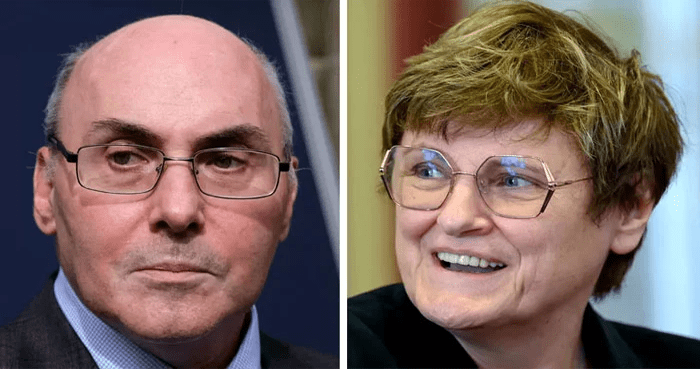The prestigious Nobel Prize in Medicine has recently been awarded to two remarkable scientists, Professors Katalin Kariko and Drew Weissman. Their groundbreaking work has forever altered the landscape of medicine by pioneering the development of mRNA COVID-19 vaccines. This transformative technology, initially experimental, has rapidly become a global savior, shielding millions from severe COVID-19 cases. Let’s dive into the revolutionary world of mRNA vaccines and the well-deserved recognition bestowed upon these visionary scientists.

Unlocking the Nobel Prize
A Paradigm Shift in Vaccine Development
Traditionally, vaccines have relied on weakened or inactivated forms of the virus or bacterium they aim to combat. However, mRNA vaccines take a distinct and innovative approach. Instead of introducing weakened pathogens, they contain genetic instructions encoding a specific viral protein. Once injected into the body, these instructions coax our cells into manufacturing this protein.
The immune system swiftly recognizes these foreign proteins as invaders, launching a potent counterattack. Crucially, it acquires the knowledge to combat the actual virus if encountered in the future. The exceptional adaptability of mRNA technology allows for the rapid creation of vaccines against various diseases, including cancer, provided the correct genetic instructions are available.
Masters of mRNA: Professors Kariko and Weissman
At the forefront of advancing mRNA vaccine technology stand Professors Kariko and Weissman. Their groundbreaking work harnessed the natural role of RNA in converting genetic instructions from DNA into the vital proteins essential for our bodies. One of their critical achievements was overcoming the challenge of producing significant amounts of the target protein without inducing excessive inflammation. This breakthrough marked a pivotal transition from animal experiments to the development of vaccines for human use.
The COVID-19 Pandemic: A Catalyst for mRNA Innovation
The COVID-19 pandemic served as a crucible for scientific innovation, propelling mRNA technology to the forefront. Renowned vaccines, such as Moderna and Pfizer/BioNTech, were developed using this transformative approach. These vaccines emerged as indispensable tools in the battle against the virus, underscoring the immense potential of mRNA technology to revolutionize vaccine development.
A Glimpse into the Future: mRNA Beyond COVID-19
The impact of mRNA technology extends far beyond the realm of COVID-19. Scientists are now exploring its potential to combat other diseases, including cancer. By analyzing unique tumor proteins specific to malignant cells, researchers aim to instruct a patient’s immune system to target and neutralize their cancer effectively. This promising avenue could reshape cancer treatment as we know it.
A Nobel Prize-Worthy Legacy
Professors Kariko and Weissman’s pioneering work not only contributed to one of the most significant scientific breakthroughs of our time but also exemplified the potential of mRNA technology to transform medicine. Their recognition with the Nobel Prize in Medicine reaffirms the monumental importance of their achievements in advancing human health.
Both laureates, now occupying esteemed positions in academia, have left an indelible mark on the field of mRNA research and vaccine development. Their tireless dedication to improving global health has positioned mRNA technology as a beacon of hope for the future of healthcare.
In conclusion, the Nobel Prize in Medicine has rightfully celebrated the extraordinary contributions of Professors Kariko and Weissman. Their work represents a beacon of hope, not only in the context of the COVID-19 pandemic but also for the countless lives that will be touched by the revolutionary potential of mRNA technology in the years to come.

